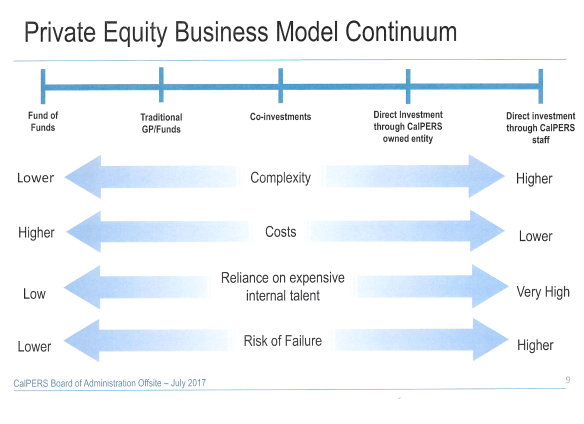
Particular funds can have their own timelines, financial investment objectives, and management philosophies that separate them from other funds held within the very same, overarching management firm. Effective private equity companies will raise many funds over their life time, and as firms grow in size and complexity, their funds can grow in frequency, scale and even uniqueness. To get more info regarding business partner and also - check out his websites and -.
Prior to founding Freedom Factory, Tyler Tysdal handled a development equity fund in association with numerous celebs in sports and home entertainment. Portfolio company Leesa.com grew rapidly to over $100 million in revenues and has a visionary social mission to “end bedlessness” by donating one bed mattress for each ten sold, with over 35,000 donations now made. Some other portfolio business remained in the markets of white wine importing, specialty financing and software-as-services digital signs. In parallel to managing possessions for businesses, Ty was handling personal equity in real estate. He has had a variety of successful personal equity financial investments and several exits in trainee housing, multi-unit housing, and hotels in Manhattan and Seattle.
Handling Director/ Partner – In charge of leading the firm’s investment focus and method, as well as managing relationships with investors and raising new funds. local investment fund. – Participate in investment decisions, being in the financial investment committee, and rest on the portfolio business’ board. – Settlement is mostly driven by revenues of the firms.
An intro to private equity in five sections: (1) Meaning and structure of the industry (2) Buyout funds (3) Venture funds (4) Development/Growth funds (5) Due Diligence and other subjects – $ million investors. The great point about this book is that it doesn’t get overly technical from the start, but takes some time describing the service model of private equity firms in basic.
This book is mainly about the introduction of junk bonds, which are the kind of financial obligation used to fund Leveraged Buyouts (LBOs), without which the private equity market would not truly exist. The books focuses on the increase and fall of legendary financial investment bank Drexel Burnham Lambert, the bank that ruled the junk-bond world in the ’80s.
This book relates the true story of a bidding war for RJR Nabisco (one of the biggest durable goods company in the U.S. at the time), who was eventually obtained by KKR. We advise this book since it is well-written and connects to a true, extremely important occasion of monetary history; likewise, it will give you a good idea of the political battles that take place throughout large utilize buyouts.
This is a study of private equity pioneer and powerhouse KKR. This is an excellent read for lots of reasons; it not just gives you an impartial story of KKR’s increase to prominence, but it likewise information other elements of private equity such as offer structuring, meanings of technical terms, and an interesting insight into entrepreneurship.
Private Equity Funds – How They Work?

China is not just a book about doing organisation in China. It tells the genuine story of a tough Wall Street lender coming to China to buy companies, ultimately investing $400m buying Chinese business in the ’90s, with somewhat disastrous (and sometimes humorous) results. It is extremely well-written, and offers an excellent insight into doing private equity in China, and likewise about how difficult it is for private equity firms to manage and turn around the companies they buy – investors state prosecutors.
The list listed below is a high-level explanation of the different types of debt instruments that are commonly used in LBO transactions. When acquiring a business, the private equity fund will usually supply anything in between 30% to 50% of the purchase cost in equity (i. harvard business school.e. the fund’s own cash), and borrow the rest.


The type of financial obligation used, in order of risk (from the loaning bank’s perspective), consists of: This debt ranks above all other financial obligation and equity capital in the business, meaning it needs to be repaid prior to other lenders can get any money. The debt has really rigorous requirements (i (indictment obtained foxchannel).e. need to abide by particular monetary ratios), and is normally secured versus specific properties of the business.
Therefore, it has the lowest rate of interest of all these types of debt and, from the lending institution’s point of view, this is the most safe and secure type of financing. Debt payments can be spread out over a 4 to nine-year period or be paid in one last payment in the in 2015. This debt ranks behind senior financial obligation in order of concern on any liquidation.
The requirements of the subordinated financial obligation are generally less stringent than senior financial obligation, but since subordinated financial obligation provides the lender less security than senior financial obligation, providing expenses are normally greater. This is generally high-risk subordinated financial obligation, and ranks behind senior debt and unsecured debt. Interest on mezzanine financial obligation is much higher, but while part of the interest requires to be paid in money, another part (called a PIK, or “paid in kind”) is rolled up into the principal.
Work With A Private Equity Firm

Therefore, the list below year, you will need to pay 10% on the brand-new principal of 100 + 5 accrued in previous year (which equals 105), and this continues until maturity when the complete primary requirements to be repaid (typically within 10 years). In some cases the mezzanine debt will also consist of warrants or options so that the lending institution can take part in equity returns.
But what do private equity specialists really do on a daily basis? The time of private equity professionals is divided in between four main categories: This job is mostly carried out by the senior partners in a private equity fund, however often a devoted fundraising group will work within a few of the larger funds.
This goes in cycle: when the current fund is close to being completely spent (i.e. 70-80% of the cash has been purchased companies), the senior management will go on the road and ask for fresh cash – prosecutors mislead money. Fundraising involves providing the previous performance of the fund, its technique, and the individuals working in the firm who will be in charge of making financial investments.
The “sourcing” (i.e. discovering financial investments) part is mainly done by mid-to senior management, and includes searching for possible targets and connecting to the management of those business, either directly or by means of an intermediary such as an investment bank. Lots of private equity funds will specialise in sectors and/or areas; their dedicated groups will have extremely strong understanding of all the appealing business in a specific sector and will also know prospective targets’ management teams well.
This includes drilling into the financial efficiency of the company, evaluating the trends in the market, working out with the target, and collaborating the work of advisors: investment banks, accounting professionals, technique specialists, lawyers, technical experts, and so on. Once they have actually analysed sufficient information, the team will provide an “financial investment paper” to the senior partners to propose the investment.
The 6 Things A Private Equity Firm Will Do After They Buy
Once a business has actually been obtained, it requires to be handled for a number of years up until it is sold off. While private equity professionals are not involved in the everyday running of the companies they purchase, they will keep an eye on performance and be associated with important tactical decisions. While some companies have specialist groups that handle investments (” operations teams”), the majority of the time the team that dealt with the deal will supervise of keeping track of the company.
Investments are typically kept for 3 to 5 years, and will be offered after that period. This procedure is likewise generally managed by the more junior group under senior management supervision. Companies can be sold though a sale to another company, a sale to another private equity firm, or via an IPO on the stock market.

However, those who handle to make the switch to Private Equity typically do so at a very young age, either in their mid-twenties or early thirties. So, do they keep working in private equity for the next 30 years? Can they alter tasks? Below is an introduction of the possible profession exits available to private equity specialists.

If you work in private equity, you will not be able to become millionaire overnight – it will take a minimum of five to ten years. For that reason, a lot of PE experts choose to transfer to hedge funds, where returns can be made quickly and money can be earned (however likewise lost) more rapidly.